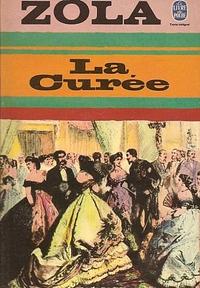You need to sign in or sign up before continuing.
Take a photo of a barcode or cover
reflective
slow-paced
Plot or Character Driven:
Character
Strong character development:
No
Loveable characters:
No
Diverse cast of characters:
No
Flaws of characters a main focus:
Yes
challenging
dark
emotional
sad
tense
slow-paced
Plot or Character Driven:
Character
Strong character development:
Yes
Loveable characters:
Complicated
Diverse cast of characters:
No
Flaws of characters a main focus:
Yes
Brilliant
informative
reflective
slow-paced
This book is so rich in detail. It can be difficult to read at times and hard to find a good break because descriptions last so long. It’s a book about greed and insatiable desires. I’m glad I finally picked this series up again.
slow-paced
Plot or Character Driven:
Character
Strong character development:
No
Loveable characters:
No
Diverse cast of characters:
No
dark
emotional
informative
mysterious
reflective
sad
tense
fast-paced
Plot or Character Driven:
A mix
Strong character development:
Complicated
Loveable characters:
Complicated
Diverse cast of characters:
Yes
sad
slow-paced
Plot or Character Driven:
Character
Strong character development:
No
Loveable characters:
No
Diverse cast of characters:
No
Flaws of characters a main focus:
Yes
challenging
dark
medium-paced
Plot or Character Driven:
Character
Strong character development:
Yes
Loveable characters:
Complicated
Diverse cast of characters:
Complicated
Flaws of characters a main focus:
Yes
Superb.
The next in the Rougon-Macquart cycle, which I am enjoying very much, and though I found this to be good, I have a few reservations. In this lively instalment we find ourselves now far away from the provinces where Aristide Rougon has reinvented himself as a Saccard, and schemes his way to a fortune. In part this is the result of an opportunistic marriage to the much younger, richer, much more näive, and entirely neurotic Renee, whom he slowly drives mad with his underhanded dealings. He gaslights her continually, saddling her with money worries which he could easily alleviate, keeping her in a contiunual state of tension, while undermining her at every opportunity, and ultimately, stealing her fortune to rescue himself from his wild speculations. He is a moral coward of the highest order, but so brilliantly rendered that we also understand him, and our outrage is built slowly, brick by brick, until it becomes an edifice of disgust which we can no longer ignore.
But it is not as if any of the other characters are redeemable. Renee is frivolous and extravagant and is very much her own worst enemy. Saccard's son, Maxime, is a fop and an equivocator of the worst sort, and in his way he too contributes to Renee's ongoing derangement.
Gradually we are introduced to Paris' inner circle of elites, those who casually wield power and influence through the consummation of their whims and fancies, each seeking superfluous wealth and pleasure, and having no care for the effects of their schemes and the damage they cause, to themselves and to others. We find ourselves in a dizzying whirl of social confusion, which is baroque in its scale and extravagance. Zola captures it all brilliantly, and you can only be amazed at the scene he carefully constructs, and the inevitable consequences of so much social selfishness. It is a damning indictment of the rich and their shallow pursuits, rendered in the most implied fashion. Very, very clever.
However, I much prefer Zola's treatment of the poor and the destitute, because then he is dealing with humanity itself, rather than its simulacrum. While we can marvel at the brilliance of these portrayals, the subject matter is universally reprehensible. There is nobody here to really care about, as everyone, predator or prey, is equally unlikeable and it is hard to care for them, even if they are the victim of other more rapacious and ruthless individuals. A brilliant novel and an unparalleled portrait of avarice and hedonism, but with too many hard to like characters, I give this a 7 out of 10.
But it is not as if any of the other characters are redeemable. Renee is frivolous and extravagant and is very much her own worst enemy. Saccard's son, Maxime, is a fop and an equivocator of the worst sort, and in his way he too contributes to Renee's ongoing derangement.
Gradually we are introduced to Paris' inner circle of elites, those who casually wield power and influence through the consummation of their whims and fancies, each seeking superfluous wealth and pleasure, and having no care for the effects of their schemes and the damage they cause, to themselves and to others. We find ourselves in a dizzying whirl of social confusion, which is baroque in its scale and extravagance. Zola captures it all brilliantly, and you can only be amazed at the scene he carefully constructs, and the inevitable consequences of so much social selfishness. It is a damning indictment of the rich and their shallow pursuits, rendered in the most implied fashion. Very, very clever.
However, I much prefer Zola's treatment of the poor and the destitute, because then he is dealing with humanity itself, rather than its simulacrum. While we can marvel at the brilliance of these portrayals, the subject matter is universally reprehensible. There is nobody here to really care about, as everyone, predator or prey, is equally unlikeable and it is hard to care for them, even if they are the victim of other more rapacious and ruthless individuals. A brilliant novel and an unparalleled portrait of avarice and hedonism, but with too many hard to like characters, I give this a 7 out of 10.
I think I would've enjoyed this more if I actually felt like reading this book, I also read part of this book with a different translation on my kindle which hindered my enjoyment as Brian Nelson's translation is much more captivating to read.



